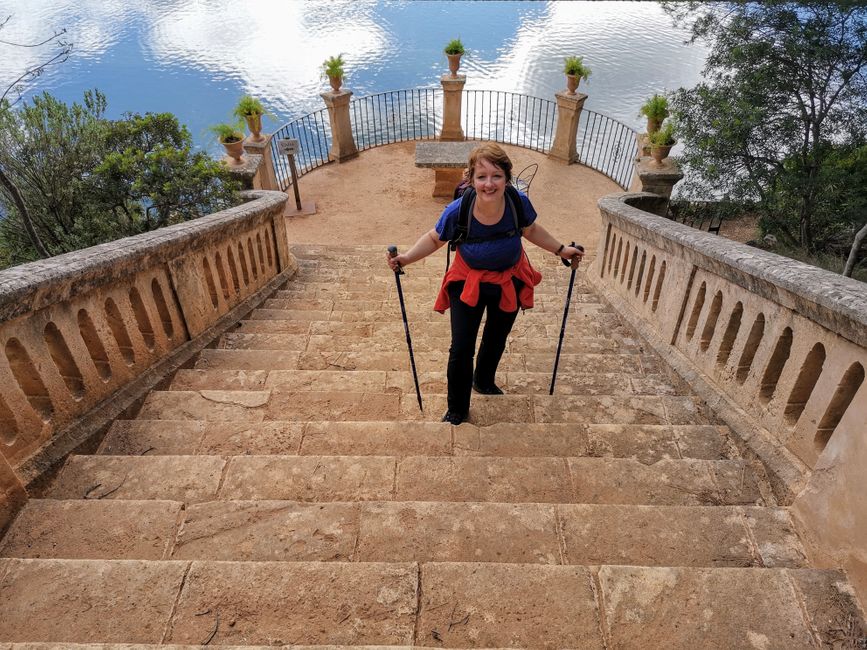Day 11, April 30, 2021: Visit to the YVCO Bulembia Child Development Center, hot springs of Rwagimba, and a valuable encounter with the seamstress in Kasese
Објавено: 02.05.2021
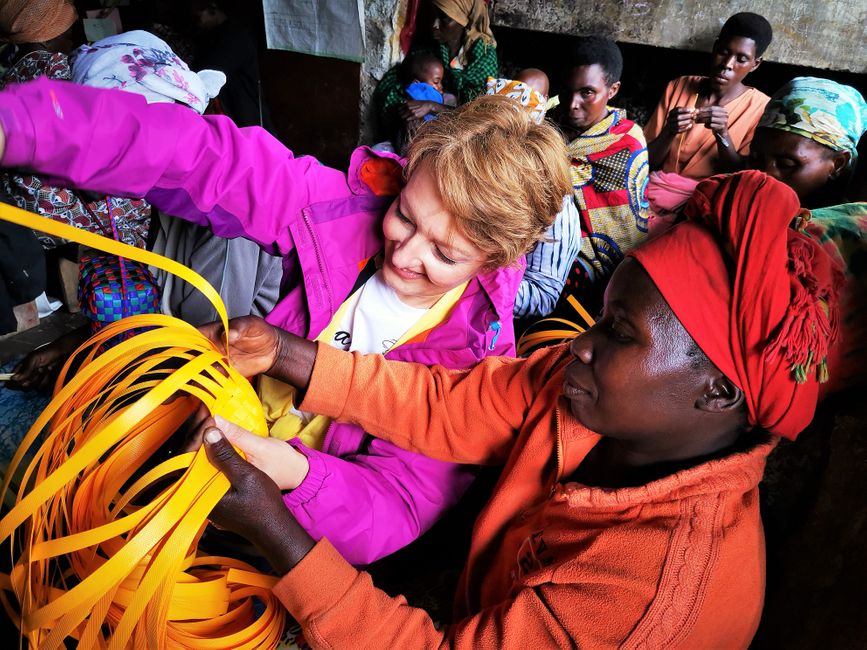
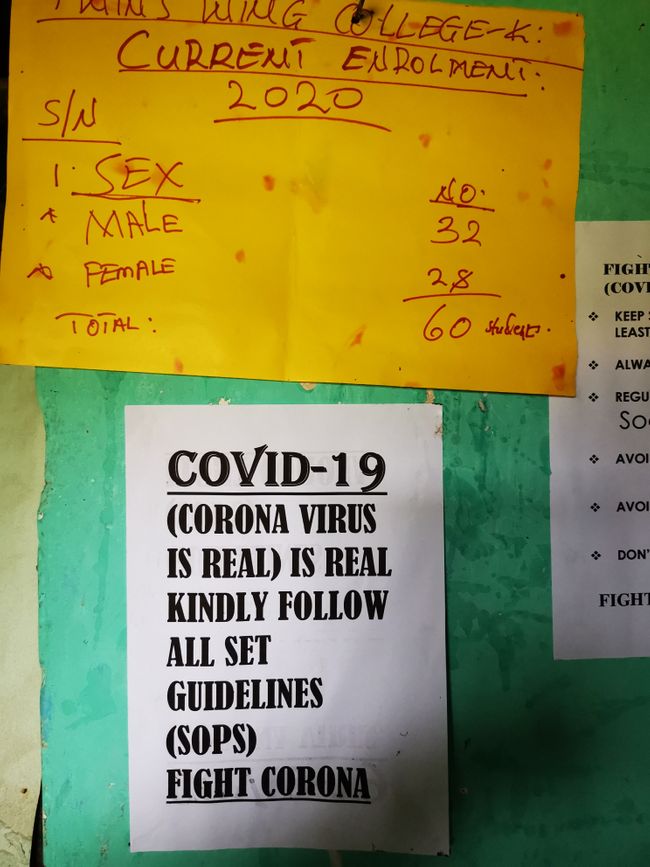
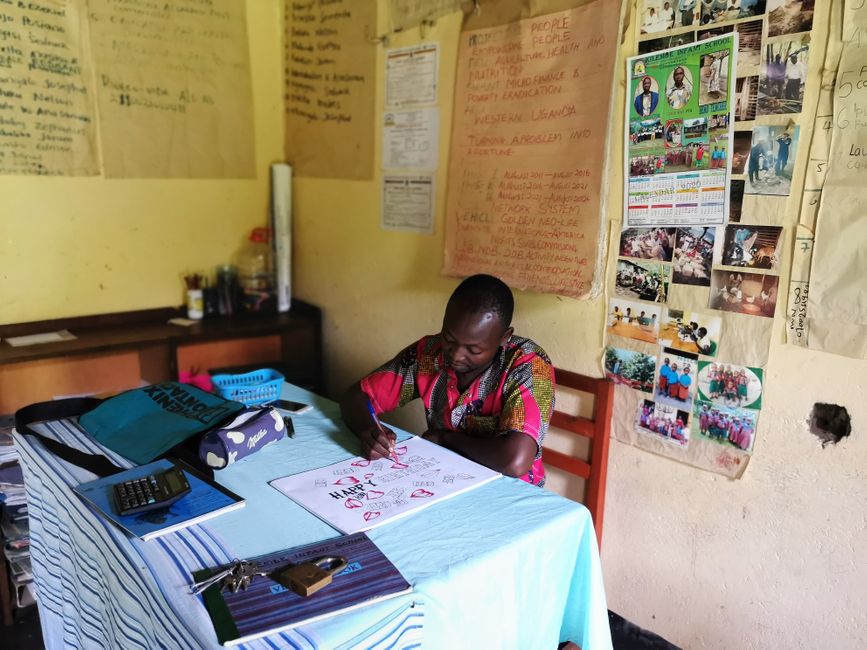
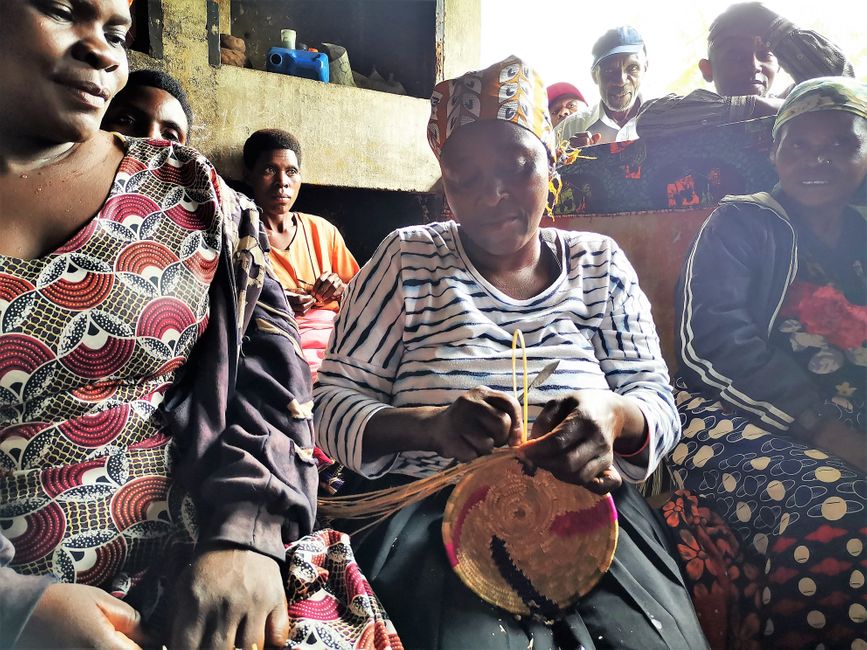
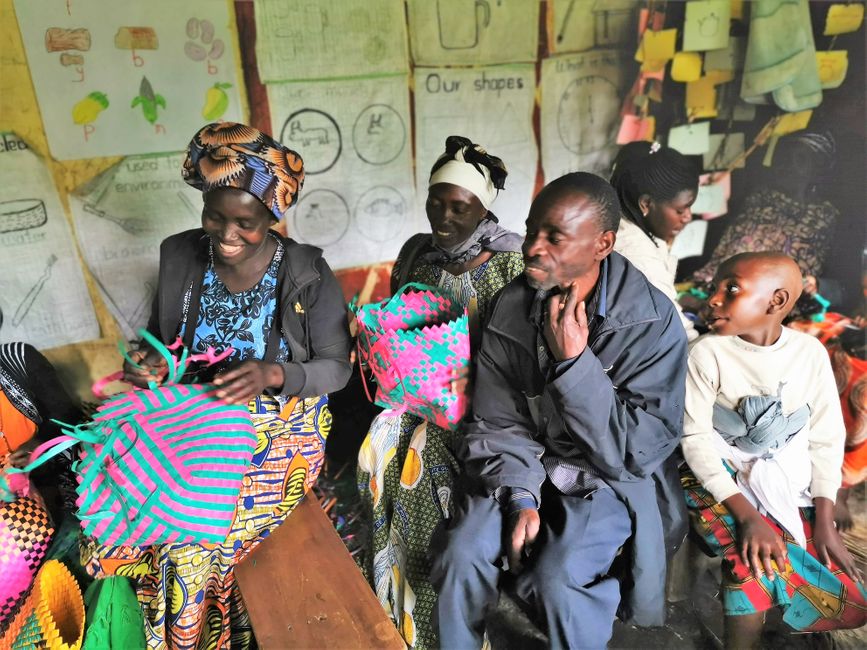
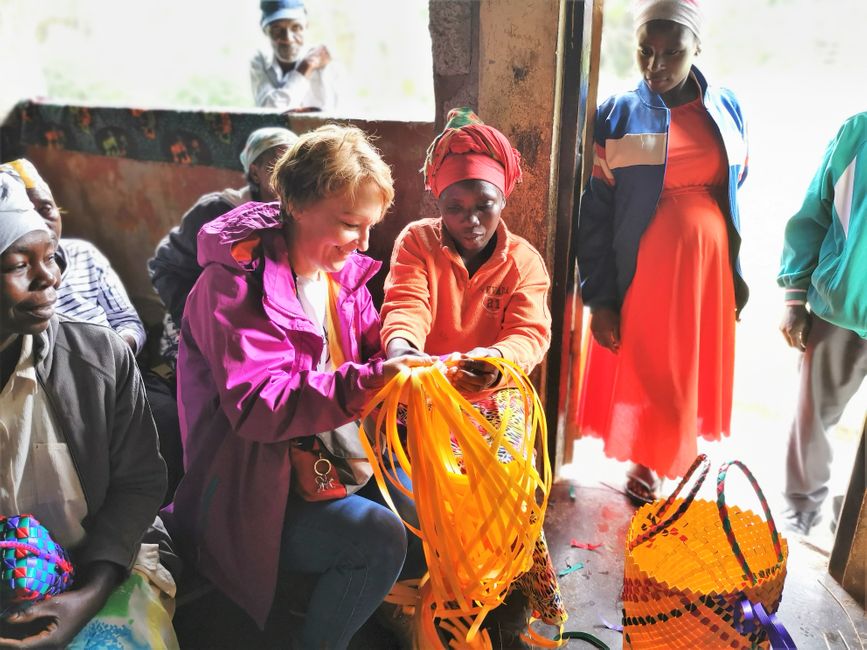
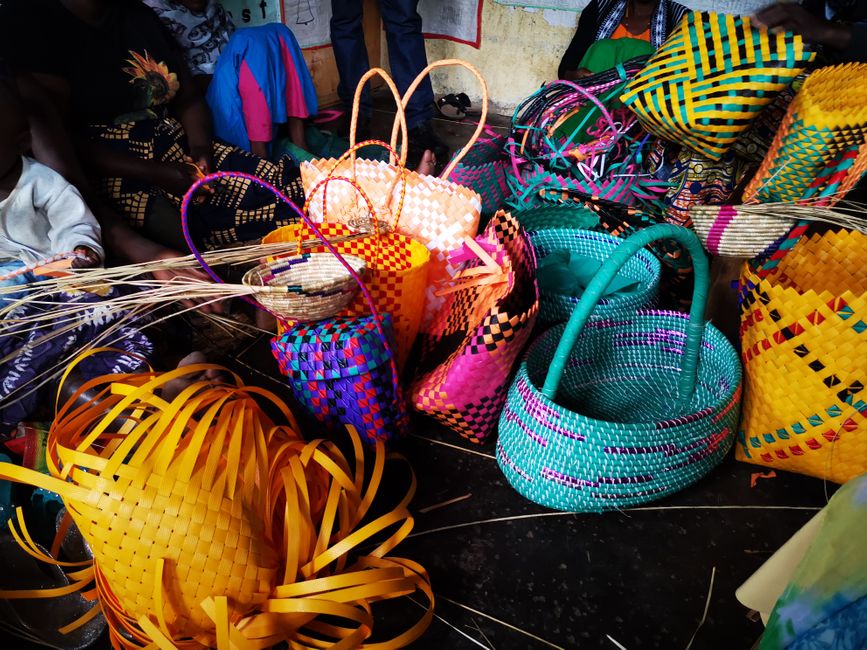
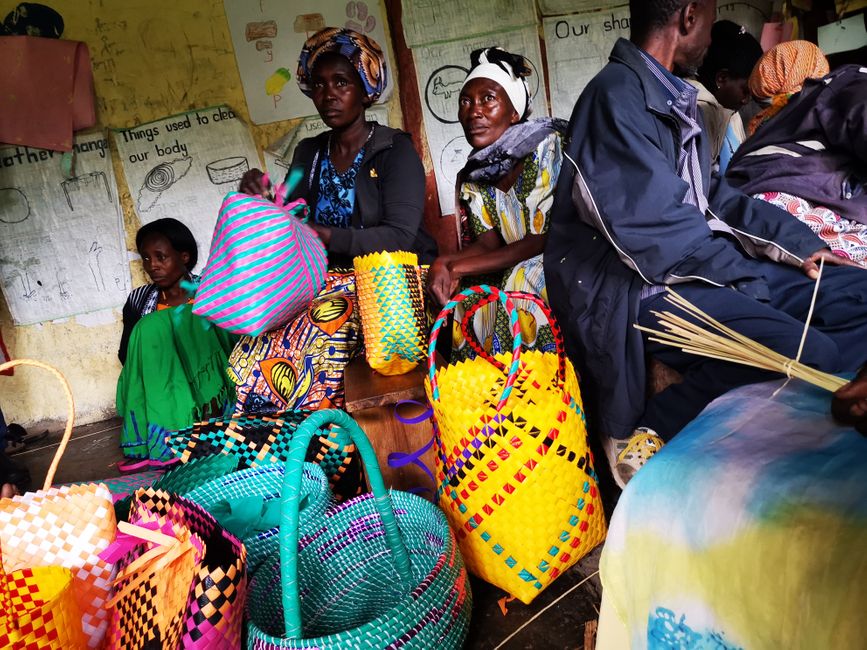
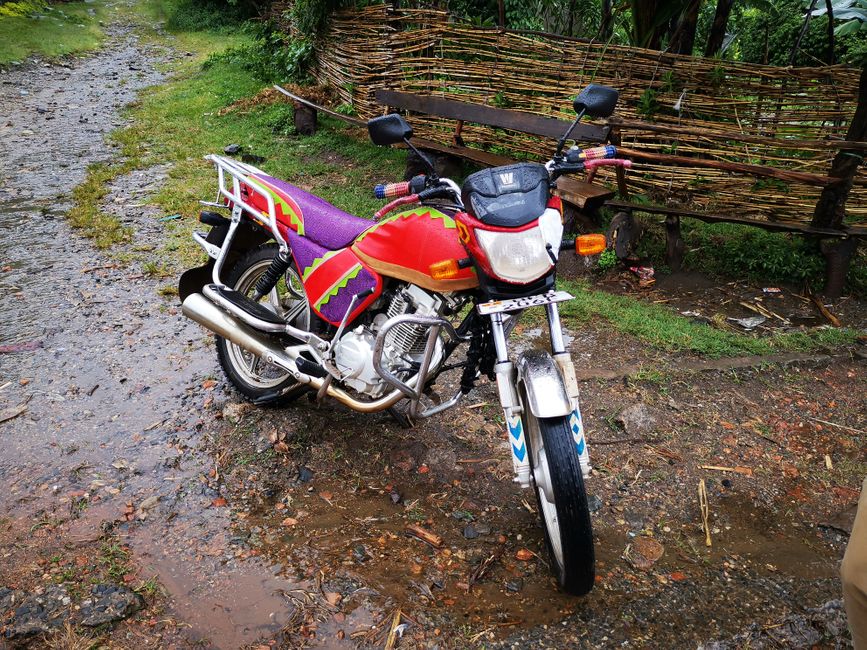
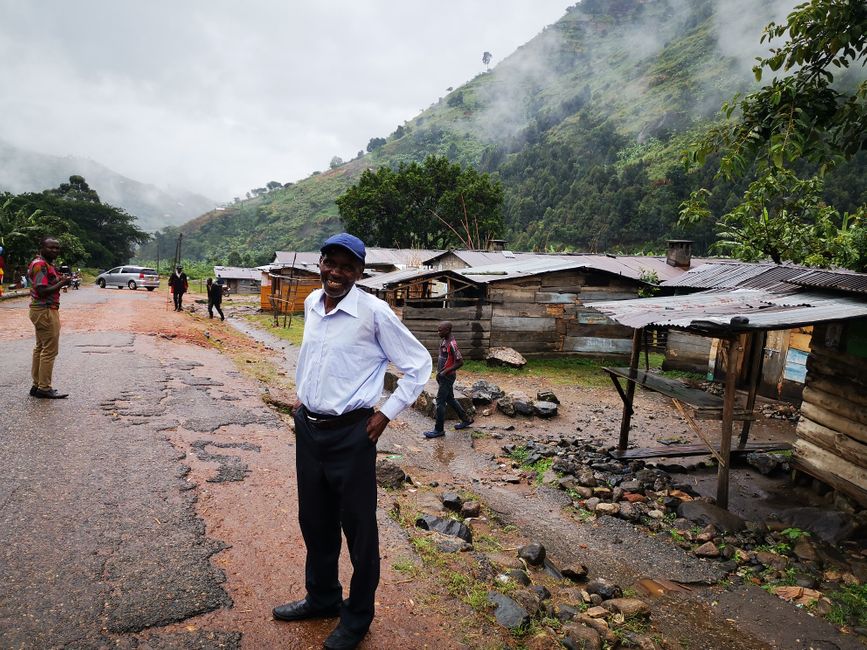
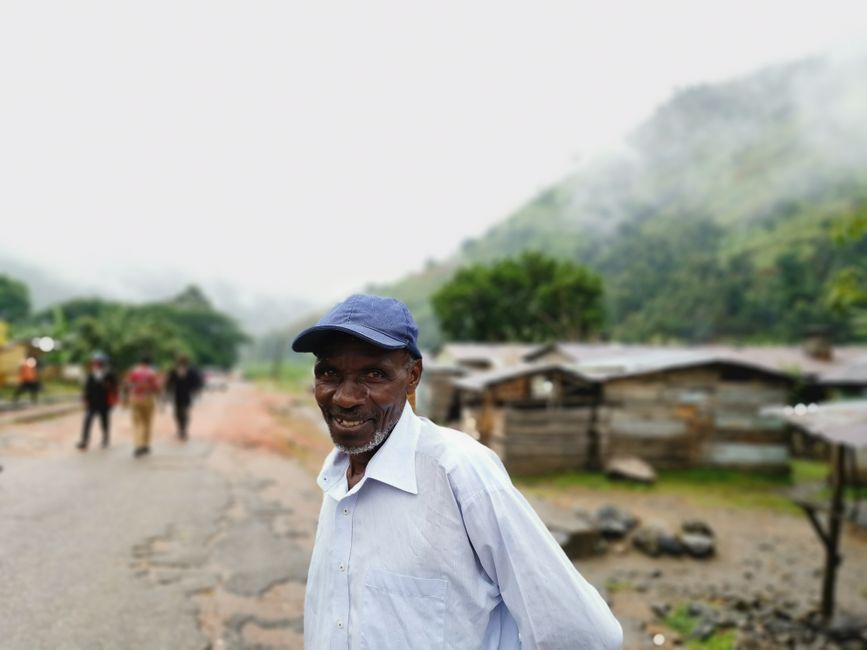
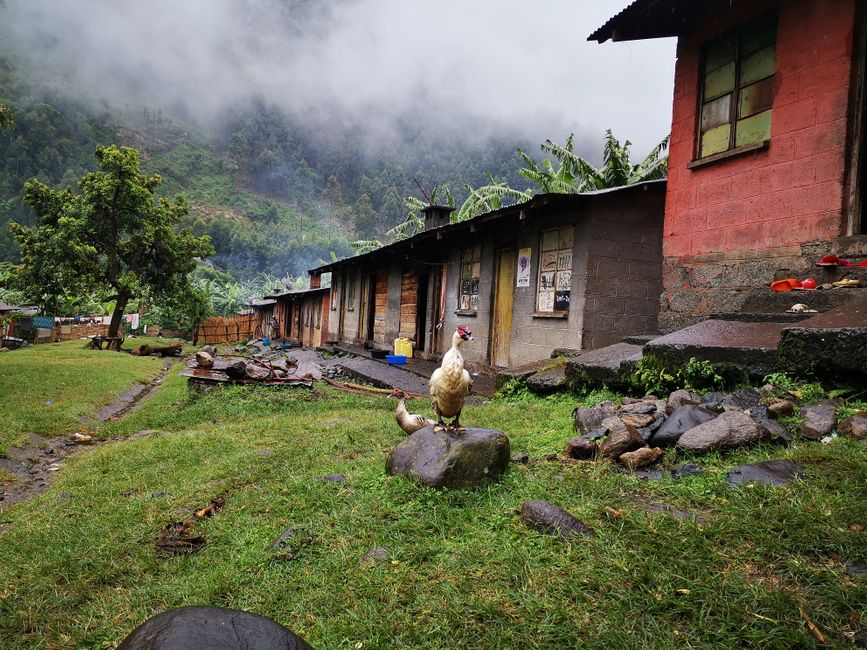
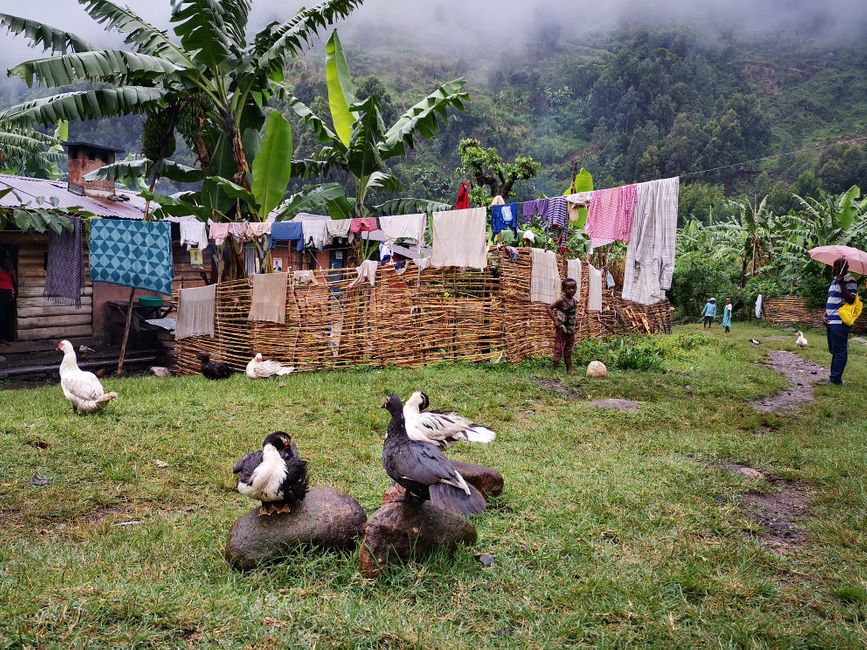
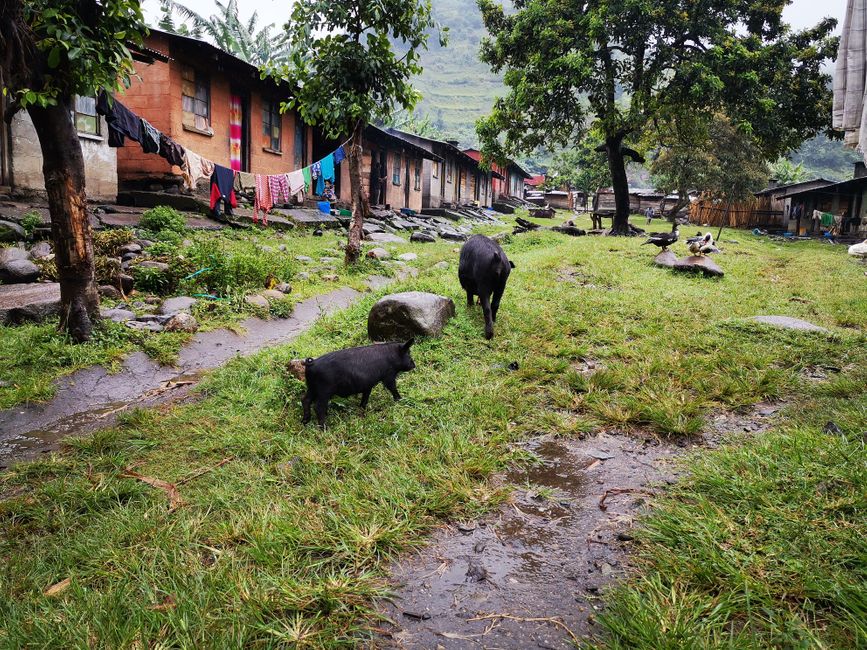
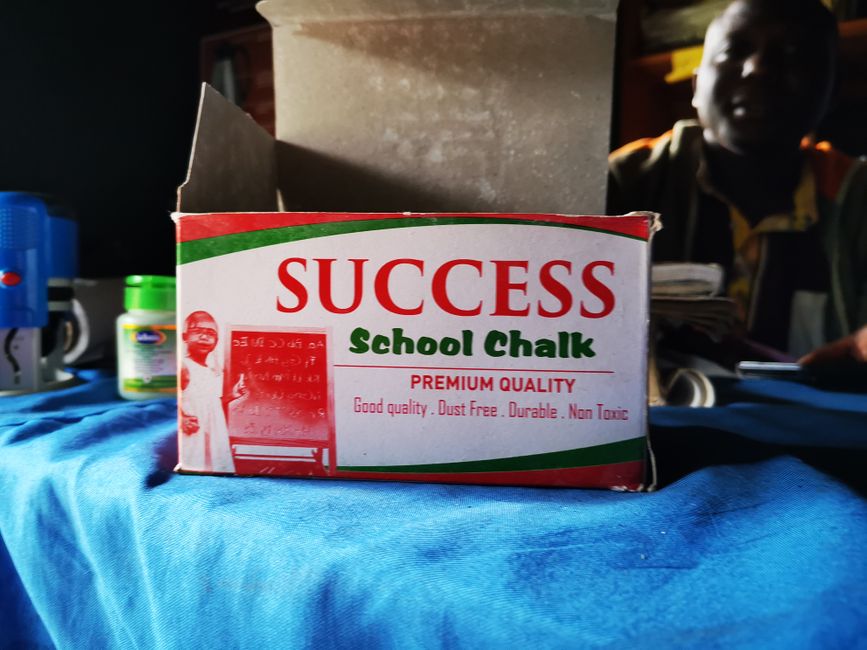
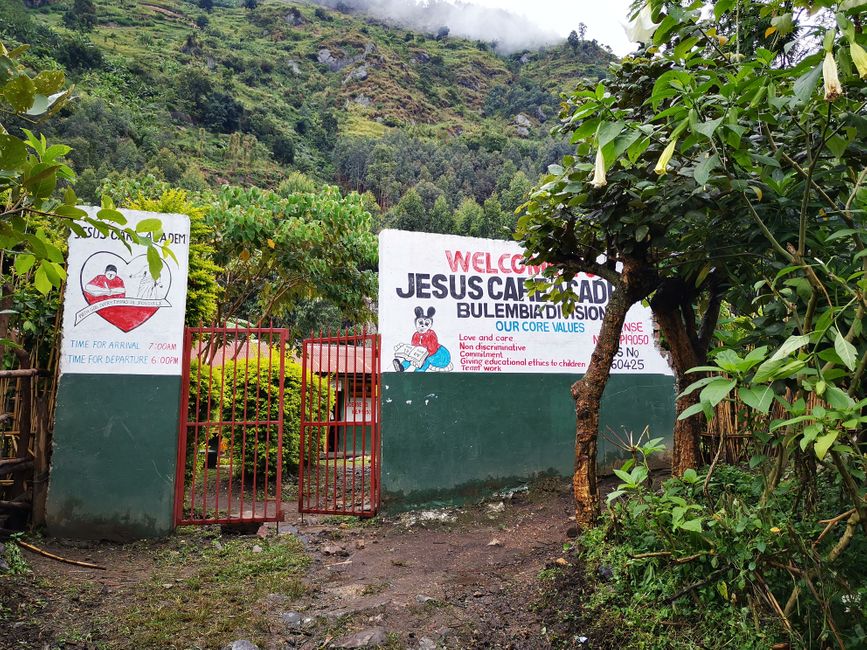
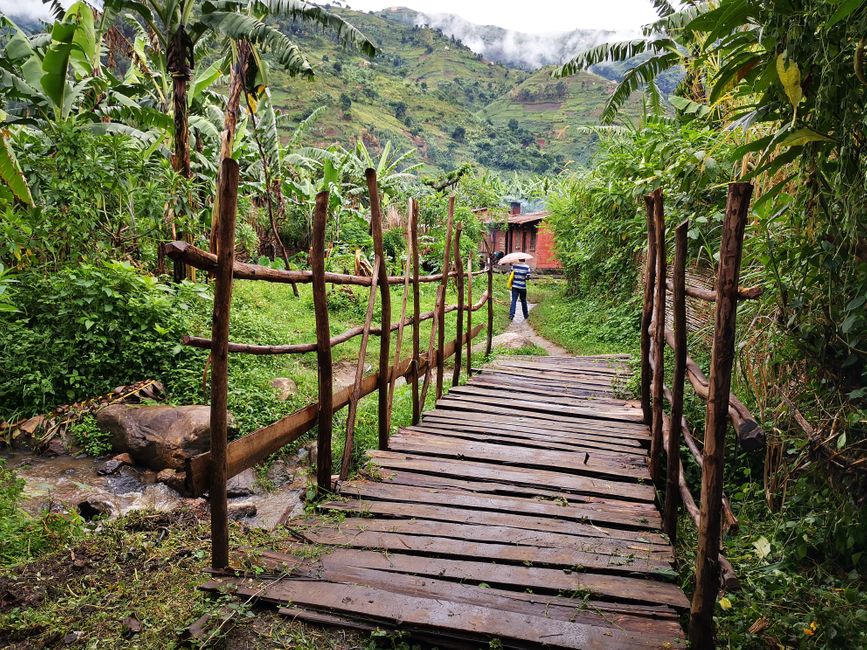
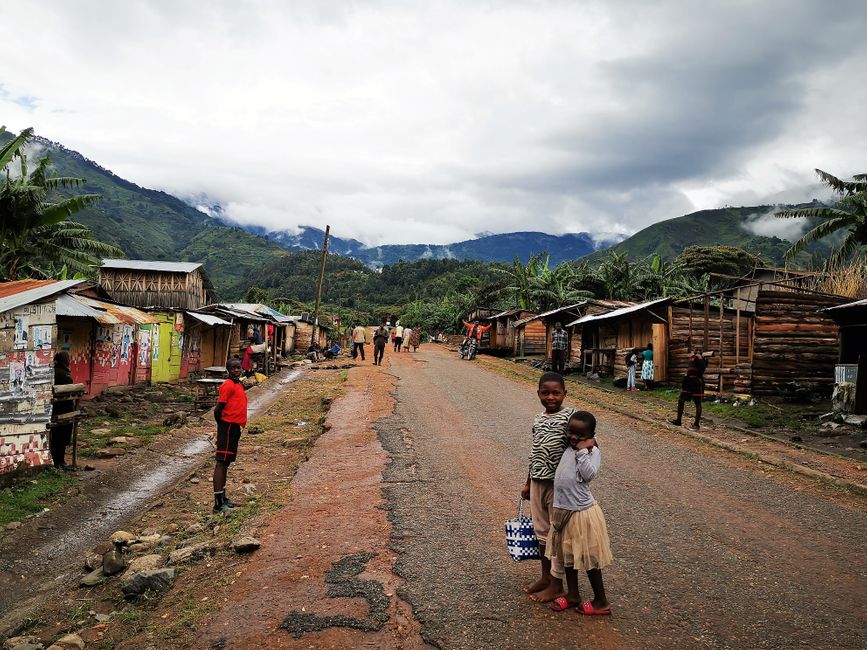
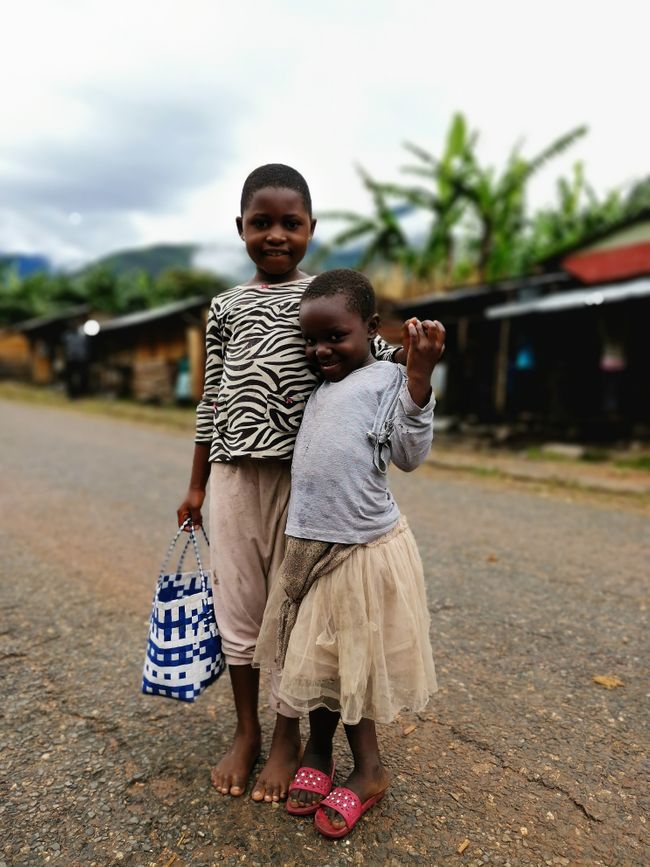
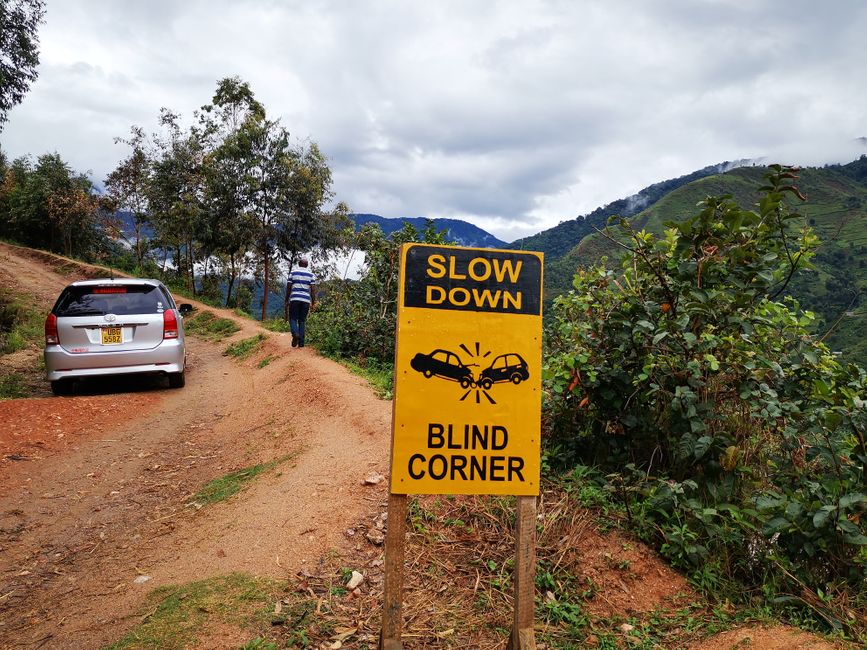
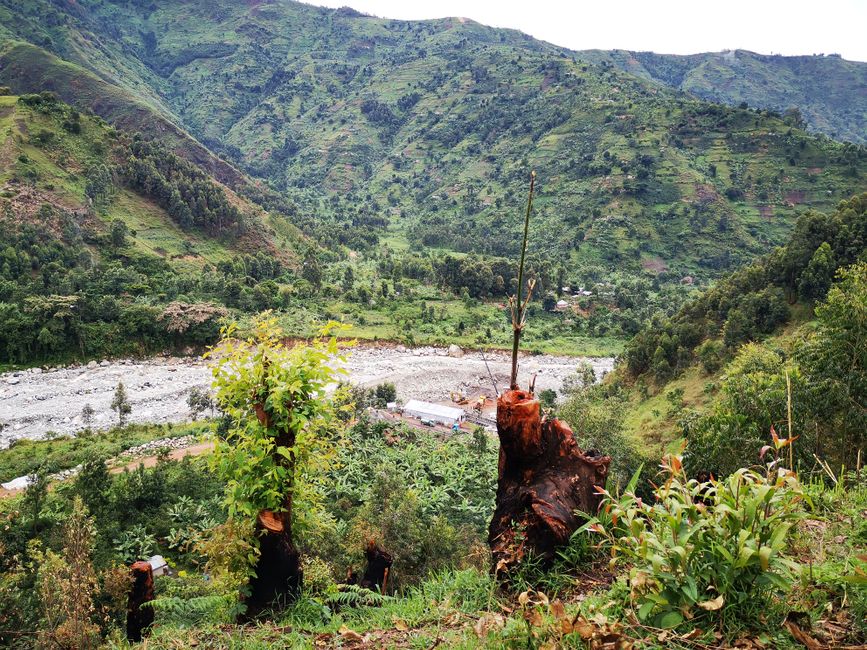
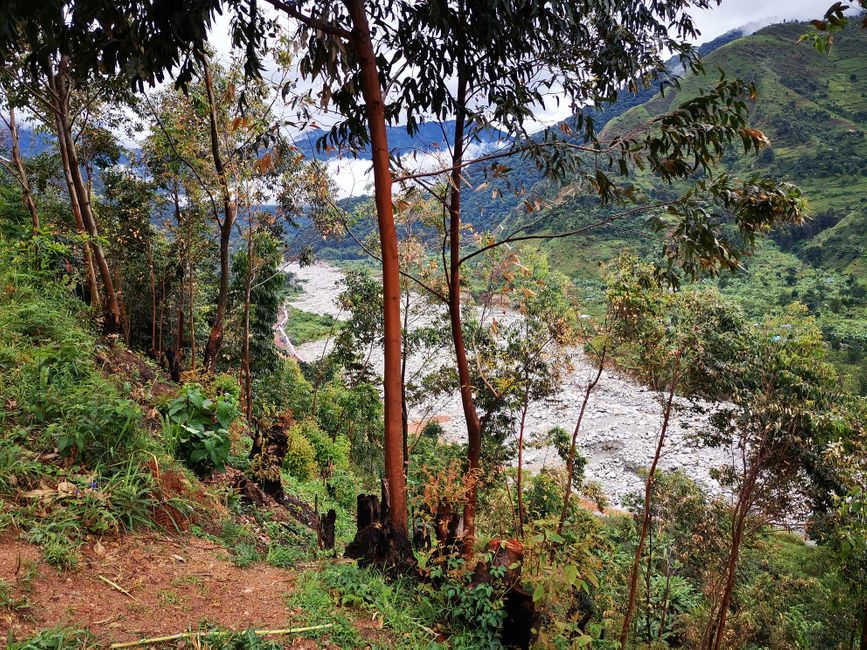
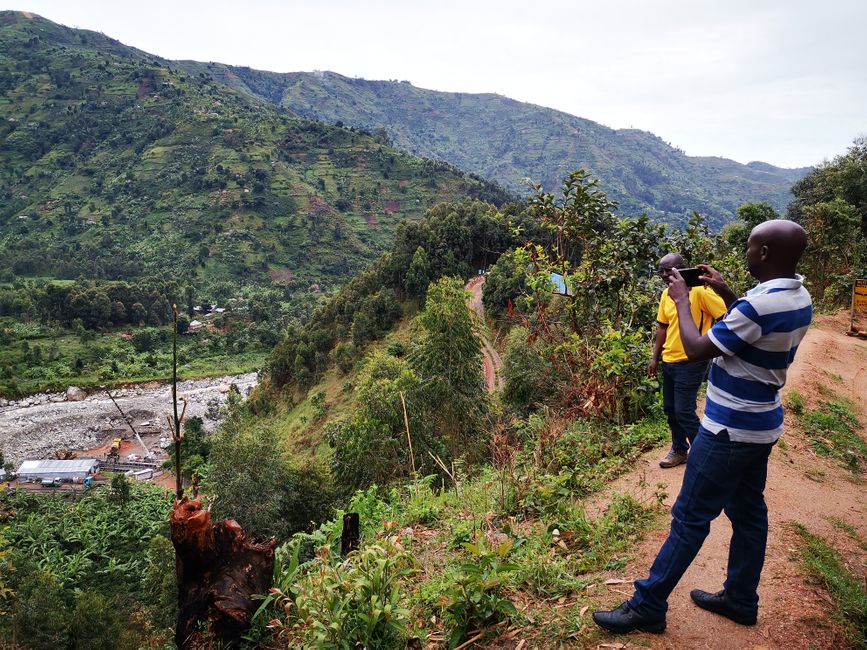
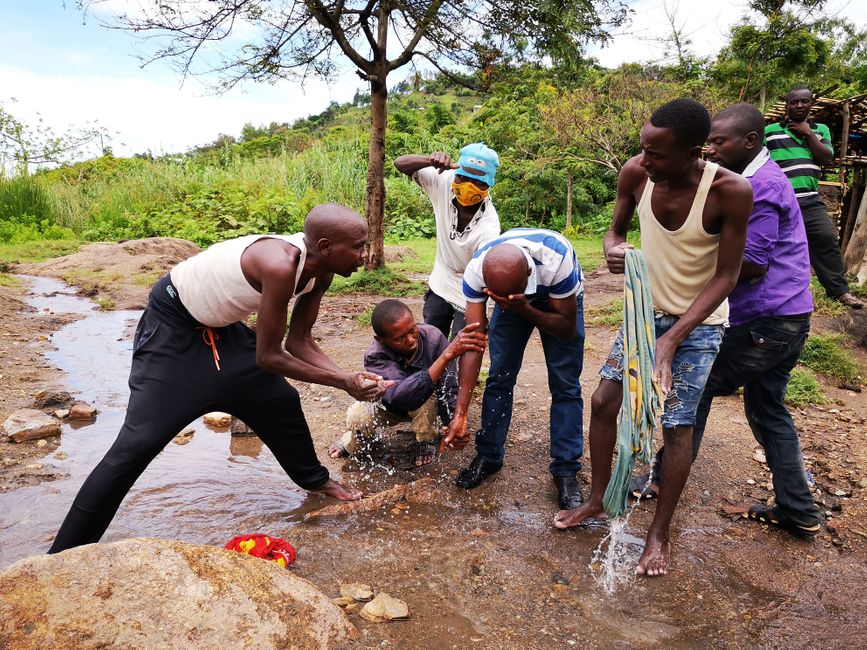
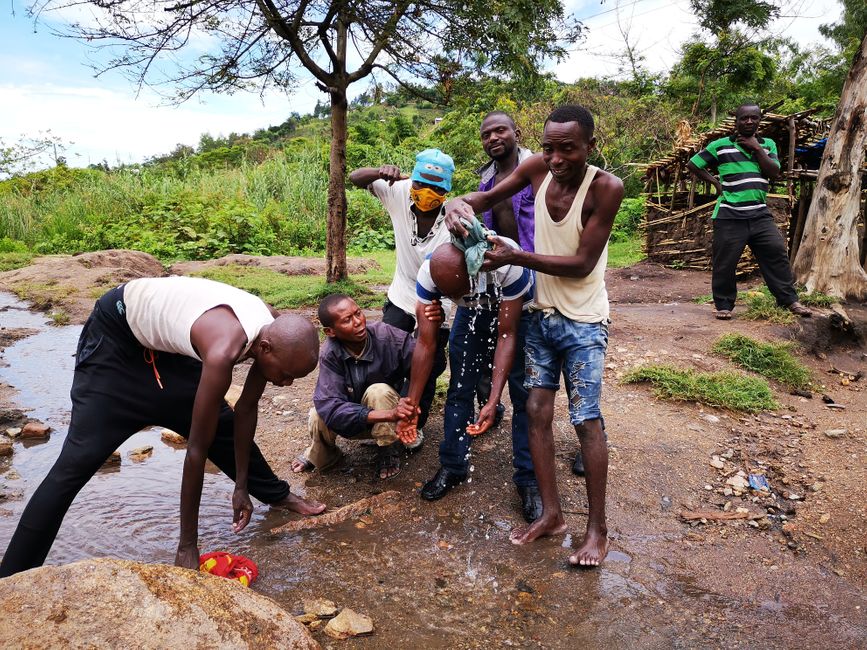
Претплатете се на билтенот
We are going back to Kilembe to the YVCO Bulembia Child Development Center, the orphanage of RWECO-VIDE (see blog post Day 3). Kilembe is located in the Rwenzori Mountains at an altitude of 1600 meters. Since it has been raining in the past few days and it is a bit cooler, I finally get to use my rain jacket and sweater 😉 I was afraid that I carried them for nothing.
Today, the focus is on the foster parents of the orphaned children and the handicrafts they produce. They make baskets, bags, and other containers in all sizes, colors, and shapes. These are made from either natural materials or colorful plastic strips that come from recycled PET bottles. They then sell the finished products at markets in the region; RWECO-Vide also supports them in this. Here at the center, foster parents have the opportunity to meet and exchange tips on production.
The vision of RWECO-VIDE is to get a larger market for the finished products and generate income for the orphanage. Therefore, I have suggested some online platforms to them as a possible first step, with the help of which they can easily create their own online shop.
At my request, one of the foster mothers shows me how to weave baskets from plastic strips. It is similar to weaving, and the amount of plastic strips used determines the size of the basket. We have a lot of fun!
In the meantime, I can already say a few words in Lokonjo, the language of this region. People are always happy when I greet them in their language: Wabukire (Good morning/Good day), Ninje Masika Ruthi (Ninje - I am, Masika - for firstborn daughter, my first name is pronounced with English "th" and sometimes an additional i is added; see blog post Day 8).
In the orphanage, we also meet Essaja, another uncle from Bwambale's huge family. He tells us that he works as a guide in the Rwenzori Mountains and has just applied for a concession for a new trail in the mountains. It costs 6 million UGX (about 1400 Euro), which he still has to raise.
Originally, we would have spent the whole day at the orphanage. However, since it has been raining heavily in the past few days and more rain is expected today, the children have been sent home to their foster parents for safety reasons, and only a few foster parents have come to exchange their handicrafts. Some of them come from distant villages, and these weather conditions make it very difficult for them.
Therefore, we leave the orphanage earlier and visit the "Jesus Care Academy", a private school that we can reach on foot in a few minutes. The older children from Bwambale go to this school, and we have a short conversation with the principal and a staff member. The church has nothing to do with the school, even though the name suggests otherwise. It is purely a spiritual name. Here in Uganda, all educational institutions actually have a reference to the Bible and to God, and blessings can be found everywhere in public life.
Then, they show me a training certificate for a computer course that the school's staff received two years ago from another SES expert. Since I don't see a computer anywhere, I ask if they have one. No, they don't have a working one. I ask further why they took a course if they don't have a computer to work on. I tell them that I would forget everything if I don't regularly apply what I have learned. That's how I learn that the flooding caused by the Nyamwamba River last year also left its mark here. The hydroelectric power plant that supplied electricity to the school was destroyed, and since then, the computer cannot be operated anymore. I found a video on vimeo that documents the destructive power of the water masses.
Even before the natural disaster last year, construction had begun on another hydroelectric power plant. However, it will take at least another year to complete. The flooding has also greatly affected the work here.
As we leave the "Jesus Care Academy," I notice the values that adorn the entrance of the school: Love and Care, non-discriminative, commitment, giving educational ethics to children and team work. The imparting of values seems to play an important role in Uganda in general. The RWECO-VIDE organization has also integrated a set of values into its corporate mission statement. However, corruption is still commonplace in Uganda, especially in government offices. It is the same everywhere in the world: When the structures allow the one who is most selfish to win, ethics and morals are quickly forgotten.
On the way back, we make a stop at the "Hot Springs of Rwagimba. People also pilgrimage here from far away because the springs are known for their healing powers. Depending on the illness, the water is either consumed or used for bathing. When we arrive, some of the bathers are receiving massages, and a woman with a very large pus-filled wound is sitting in the water. Even though I would be tempted to take a bath, I prefer not to, as I am already an attraction being one of the few white people here in the region. The "therapists" who work at the spring enthusiastically dip my hands into the water, which is estimated to be 40 degrees, and Bwambale's head is washed.
Later, Bwambale accompanies me to the seamstress because today my Salwar Kameez should be ready. Another customer is already waiting in the shop, and we start talking. Pascal tells me that he represents the Swiss NGO Keiser in Uganda and tells me about the various projects he has been involved in over the years. He originally comes from the DR Congo but has been living in Uganda for 20 years. It turns out that he, like me, has roots in the tourism industry and has lived abroad for many years, including in Kiel, where he was married to a German-Belgian woman. In addition to his voluntary work for the Swiss NGO, he runs a travel agency in Kampala and a lodge in Queen Elizabeth Park. I tell him that Bwambale is the director of RWECO-VIDE and about the new tourism project that I am currently supporting. It couldn't have been better! Pascal is a great contact who can surely help RWECO-VIDE with many questions in the future. Business cards are exchanged, and Pascal invites Bwambale to contact him.
During the conversation, I try on my newly tailored clothes. Since there is no fitting room, I try them on over the clothes I am wearing. The fabric is waxed, so it's quite sweaty. Both pieces still need to be made tighter. Pascal advises me to come back with the pants after the first wash if they are still too big, as they will shrink a little. We'll see, I'm not completely convinced by the pants yet, but the top has turned out very nice.
Just before we leave, Pascal shows us the bed mat that he had tailor-made from fabric remnants for his own house in Kasese. He also has photos on his smartphone of bedspreads made specifically for the lodge, and I tell Bwambale that these are the things tourists are looking for and examples of the uniqueness I talked about. Bwambale says that he didn't even know that the seamstress, who is an old school friend of his, also makes such things. So if the guesthouse works out, she will also be able to benefit from some orders.
On the way back, we discuss a somewhat sensitive topic: A few days ago, someone here declared their love for me, which was a surprise to me. I told Bwambale about it and that I don't want to give false hopes or expectations. In the meantime, we have both talked to the person independently, and he understands. I didn't want to hurt him, and it was kind of sweet and a compliment for me because he could be my son age-wise. And yes, some men from a very poor country would do anything to improve their living conditions, even if it means marrying a woman who could be their grandmother. But in this case, it was a little different, and that was not the reason.
Usually, on my travels, I have developed a protective shield that works very well: When asked if I'm married, my answer is naturally yes, which is emphasized by a fake wedding ring. And when asked where my husband is, I have invented countless stories and had fun seeing the astonished faces when, for example, I say that he's babysitting our children at the hotel while I'm exploring the area 😊.
In an environment where I work closely with people and where a basis of trust is important, it is not productive to invent such stories, of course.
Претплатете се на билтенот
Одговори
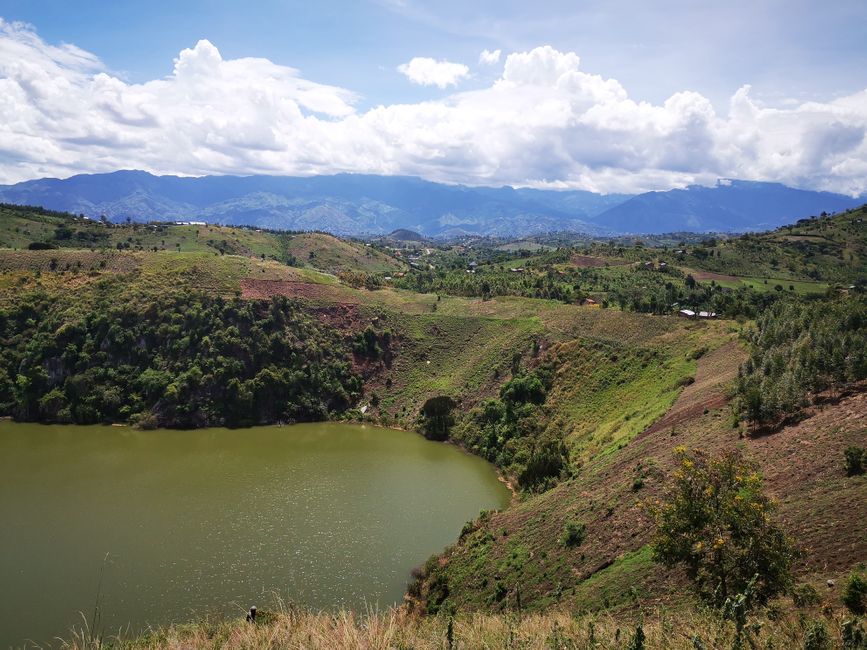
Извештаи за патување Уганда

